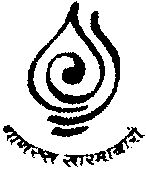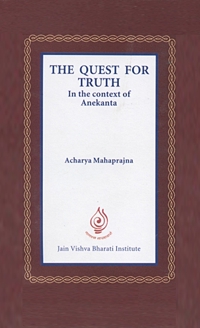
Western philosophers have deliberated a great deal on the issue of governance and independence. Philosophers like Aristotle, Locke and Mill and others have established individual freedom as the base for independent governance. On the other hand philosophers like Plato, Machiavelli, Hegel and Bach and others have given greater importance to independence in governance.
According to Political thinkers, only that man is independent who does his duty - does only that which he ought to. The duty of an individual is decided by societal beliefs and the Constitution. This means that without flouting the norms of society and organization, man is free to do as he wishes. This freedom is used for betterment for social and economic growth.
In Mahavira's philosophy the meaning of independence is kashaya-mukti-freedom from anger, ego, disillusion and greed. Only a man free from passions can act independently. Insult for insult, anger for anger, ego against ego, this is the life of reaction. Any man who lives the life of reaction can never live a life of independence. A bird pecks at its own image in a mirror, a child tries to catch its own shadow and a lion fighting with its own reflection fell into a well... all these reactions take place in the outer world.
Freedom is an internal quality. The one who is free from his inner passions looks for solutions within oneself, lives a life of action and is independent in the true sense. He is able to reply insults with silence, anger with love, arrogance with humility and faces assaults with calm. This action is not inspired by the conduct of another man but is instead born out of his own internal thoughts and so, is action. The spiritual meaning of independence is action and that of dependence is reaction.
Ahimsa is action, himsa is reaction. So Mahavira has identified non-violence as dharma and violence as adharma. In other words, independence is dharma and dependence, adharma. In the inner world, man can be independent beyond limits while in the physical, action-oriented and social world, man cannot be independent beyond limits. There the inner and the outer influences curb his independence. The soul can be completely independent only in its existence. In its contact with the outside world, its independence can be relative. This world changes by itself in its own form. Its outer form is changed by living beings, particularly humans. Is man then capable of changing the world? Can he make it a better place to live in? The answers to this question come from two opposing streams of thought. One stream of thought belongs to the philosophers who argue for independence. According to them man is free to do as he wishes. He can change the world. He can make it a better place. Those philosophers, who have placed great emphasis on time, bind action to time; those who place emphasis on nature, bind action to nature, those who emphasize destiny, bind action to destiny, those who emphasize fate bind action to fate and those who place human effort at the top, bind action to effort. Mahavira assessed man's action with an anekantic perception. He said that metaphysically, a real substance is that which has an intrinsic capacity for action, spontaneous action. It is not born out of any stimuli nor is it lost because of any stimuli. It is not bound by any external stimuli and so is completely independent. There are also some attributes of a real substance that lie outside it and are influenced at different levels, by time, nature, universal law, karma and effort. Where the influences of time, nature, universal law, karma are more powerful man is dominated by them and hence although he may be independent in thought, he becomes dependent in action. On the other hand where self-exertion is more powerful, man is independent in exercising it in spite of being dependent on time, etc. In such a manner man’s ability to work independently is relative. It is neither absolute, nor perfected nor unhindered. Had he been absolutely independent, man would have, very early in history, changed the world around to his taste and if he had not at all been independent in action, then he would have not been able to change anything in the world.
 Acharya Mahaprajna
Acharya Mahaprajna


